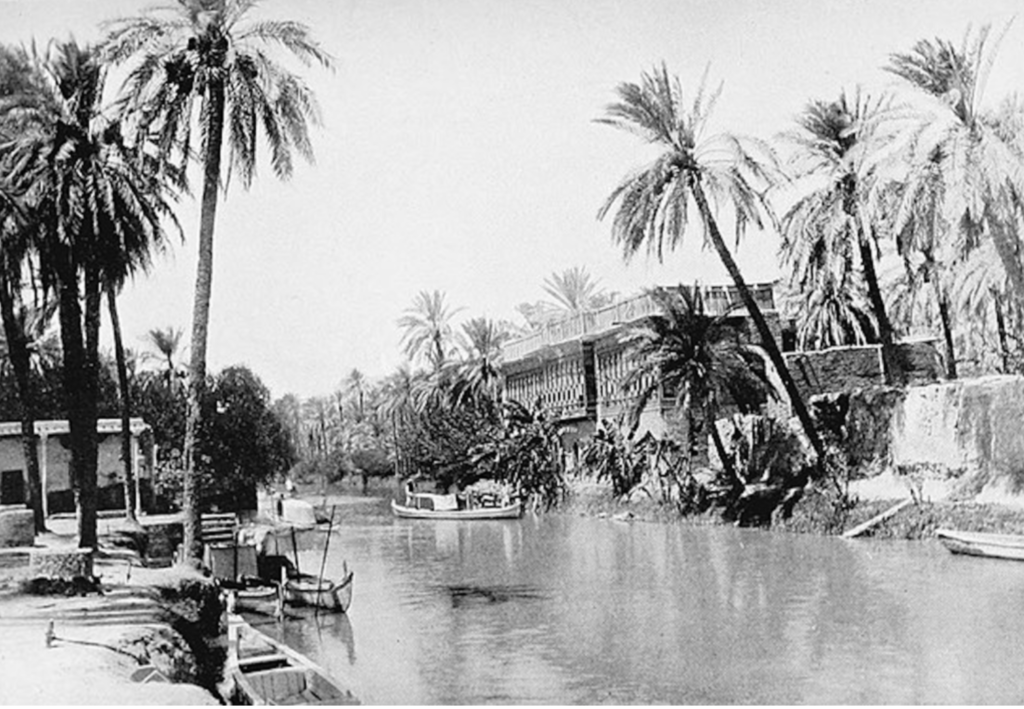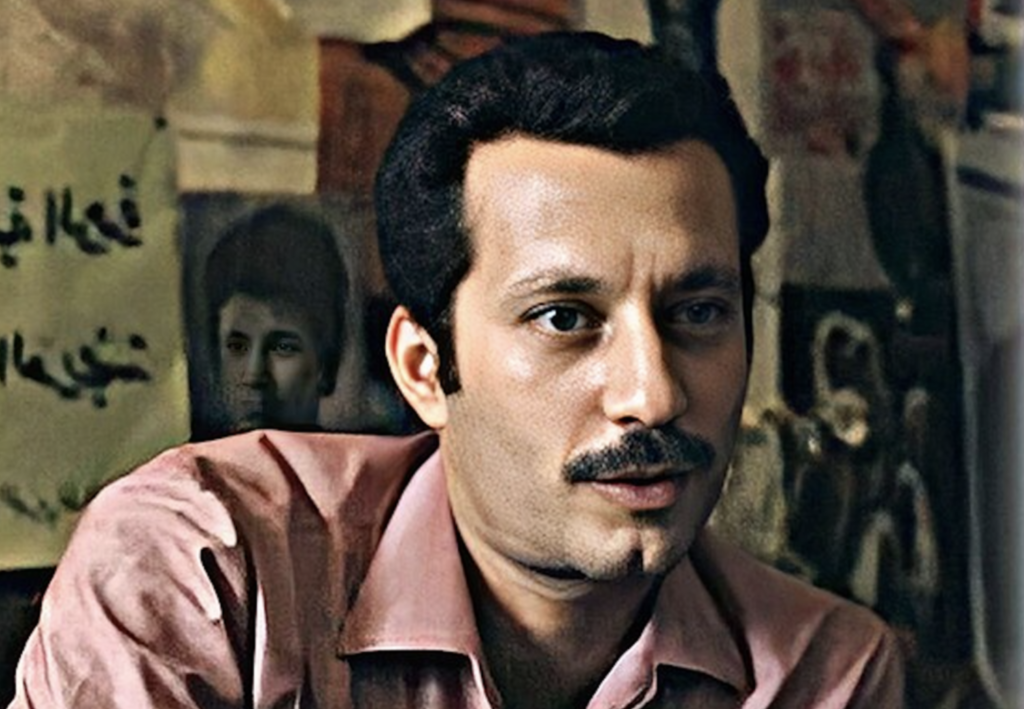"Men in the Sun" by Ghassan Kanafani: Reflecting on Displacement

By Mehdi El Merini / Arab America Contributing Writer
“Men in the Sun” is a novella written by Palestinian author Ghassan Kanafani in 1962. It stands as one of the most significant works of Arabic literature, capturing the despair, struggle, and ultimate tragedy faced by Palestinian refugees. The book tells the story of three Palestinian men from different generations—Abu Qais, As’ad, and Marwan—who seek to escape the harsh realities of life in refugee camps by illegally migrating to Kuwait in search of a better future. The narrative unfolds against the backdrop of the 1950s, a period marked by the displacement of Palestinians following the 1948 Arab-Israeli War, known as the Nakba.
Plot Summary of Men in the Sun
The novella begins with the introduction of the three main characters, each representing different stages of life and hope. Abu Qais, the eldest, is haunted by memories of his lost home in Palestine and the dream of providing a better future for his family. As’ad, a young man in his twenties, is disillusioned with the lack of opportunities in the refugee camps and is desperate to escape his situation. Marwan, the youngest, is driven by a sense of responsibility to support his family after his father abandons them.
The three men meet in Basra, Iraq, where they encounter Abul Khaizuran, a truck driver who agrees to smuggle them into Kuwait for a fee. The journey is perilous, and Abul Khaizuran’s truck is a symbol of both hope and impending doom. The men hide inside the truck’s water tank to avoid detection at the border checkpoints.
As they approach their destination, Abul Khaizuran faces delays at each checkpoint, and the men endure the sweltering heat inside the tank. Tragically, by the time they reach Kuwait, the three men have suffocated to death. Abul Khaizuran, in a moment of despair, dumps their bodies in the desert, reflecting on the futility of their dreams and the harsh reality of their lives.

Themes within “Men in the Sun”
“Men in the Sun” explores several profound themes that resonate with the Palestinian experience and the broader context of displacement and migration.
Displacement and Exile: The novella poignantly captures the loss and displacement experienced by Palestinians in the aftermath of the Nakba. The characters’ longing for their lost homeland and their futile attempts to rebuild their lives in foreign lands underscore the profound psychological and emotional scars of exile.
Desperation and Hope: Abu Qais, As’ad, and Marwan embark on their journey, driven by a desperate hope for a better future. However, their dreams shatter, symbolizing the cruel reality many refugees face as they risk everything for survival, only to encounter indifference or tragedy.
Critique of Leadership: Through the character of Abul Khaizuran, Kanafani critiques the leadership and those in positions of power who exploit the vulnerable. Abul Khaizuran, a former soldier emasculated by the war, embodies the failed leadership that abandons its people, leaving them to fend for themselves in a hostile world.
The Absurdity of Existence: The novella also delves into the absurdity of the human condition, trapping individuals in a relentless cycle of hope and despair. The tragic ending, where the men die just miles away from their destination, highlights the senselessness of their suffering and the world’s indifference to their plight.
Ghassan Kanafani: A Voice for the Palestinian Cause
Ghassan Kanafani was born in Acre, Palestine, in 1936. The 1948 Nakba forced his family to flee to Lebanon, profoundly influencing his identity and literary work. Kanafani was a prominent Palestinian writer, journalist, and political activist known for his unwavering commitment to the Palestinian cause.
After becoming a refugee, Kanafani lived as a teacher and journalist in Lebanon, Syria, and Kuwait. His writings, including short stories, novels, and essays, often focused on the themes of displacement, resistance, and the struggle for identity among Palestinians. Kanafani was also a spokesperson for the Popular Front for the Liberation of Palestine (PFLP), a political and militant organization.
Kanafani’s life was tragically cut short in 1972 when a car bomb in Beirut assassinated him, believed to have been carried out by the Mossad, Israel’s intelligence agency, in retaliation for his political activities. Despite his untimely death, Kanafani’s literary legacy continues to inspire and resonate with readers worldwide, particularly those who have experienced displacement and injustice.

Relevance to the Current Palestinian Refugee Crisis
“Men in the Sun” remains a powerful and relevant work in the context of the ongoing Palestinian refugee crisis. Displacement, desperation, and the search for a dignified life are as pertinent today as they were in Kanafani’s time. The book serves as a stark reminder of the enduring plight of Palestinian refugees, who continue to face precarious living conditions, statelessness, and the challenges of seeking asylum in foreign lands.
The current Palestinian refugee crisis, with millions of Palestinians living in refugee camps across the Middle East, is a testament to the unresolved nature of the Palestinian question. The ongoing occupation, the lack of a viable solution for the right of return, and the precarious status of refugees in host countries perpetuate a cycle of displacement and despair.
Kanafani’s novella, with its tragic ending, underscores the urgency of addressing the root causes of the Palestinian refugee crisis and finding a just and lasting solution. The story of Abu Qais, As’ad, and Marwan is not just a reflection of the past but a mirror to the present as it reminds us of the human cost of conflict and the enduring resilience of those who continue to hope for a better future.
A Stark Reminder
“Men in the Sun” by Ghassan Kanafani is more than just a story of three men seeking a better life; it is a profound meditation on the human condition, the plight of the displaced, and the indifference of a world that often turns a blind eye to their suffering. Ghassan Kanafani’s powerful narrative resonates with readers today, offering both a poignant reminder of the past and a call to action for the future. In the face of ongoing crises, Kanafani’s work urges us to recognize the humanity of those who suffer and to strive for a world where their hopes and dreams meet compassion and justice instead of tragedy.
Check out our Blog here!








